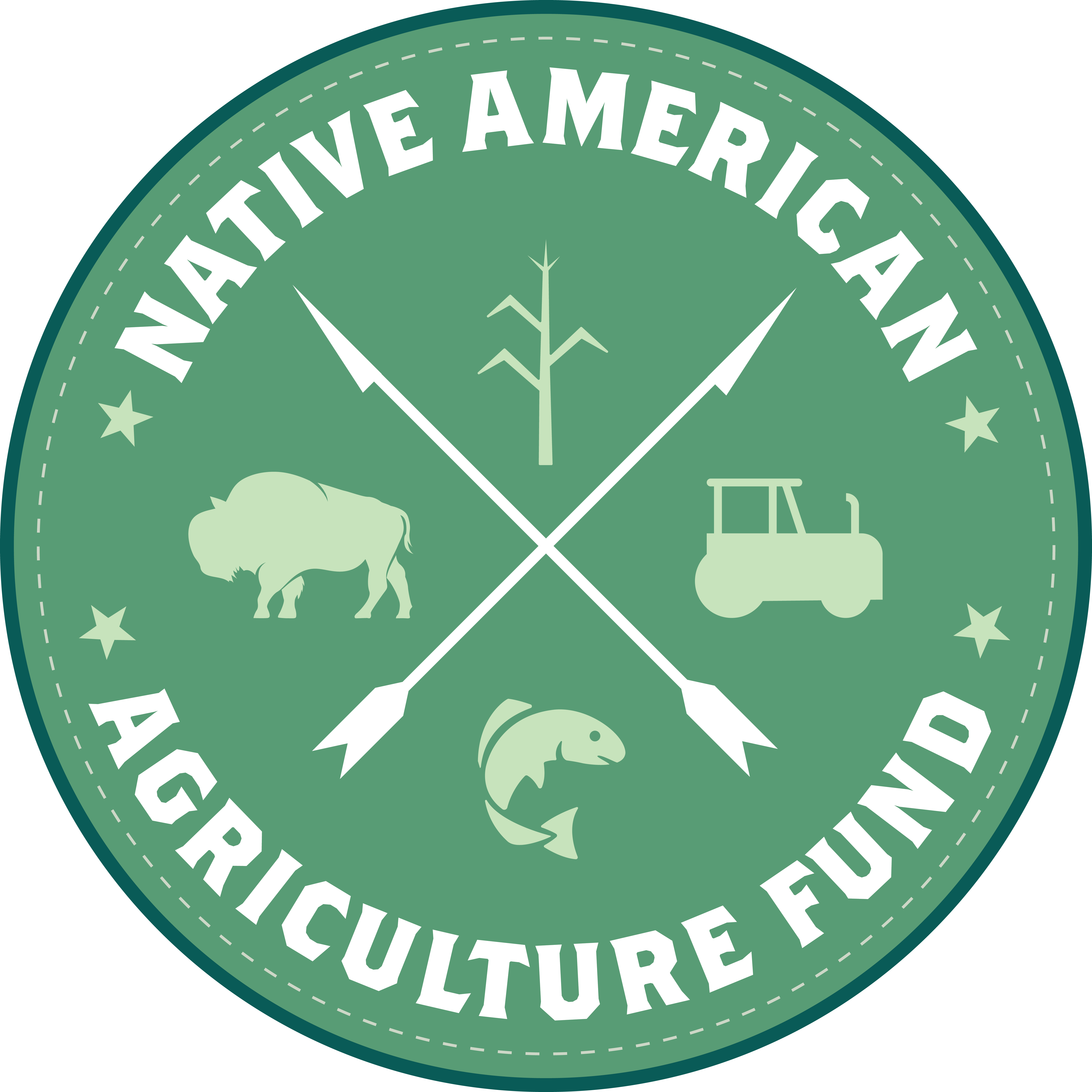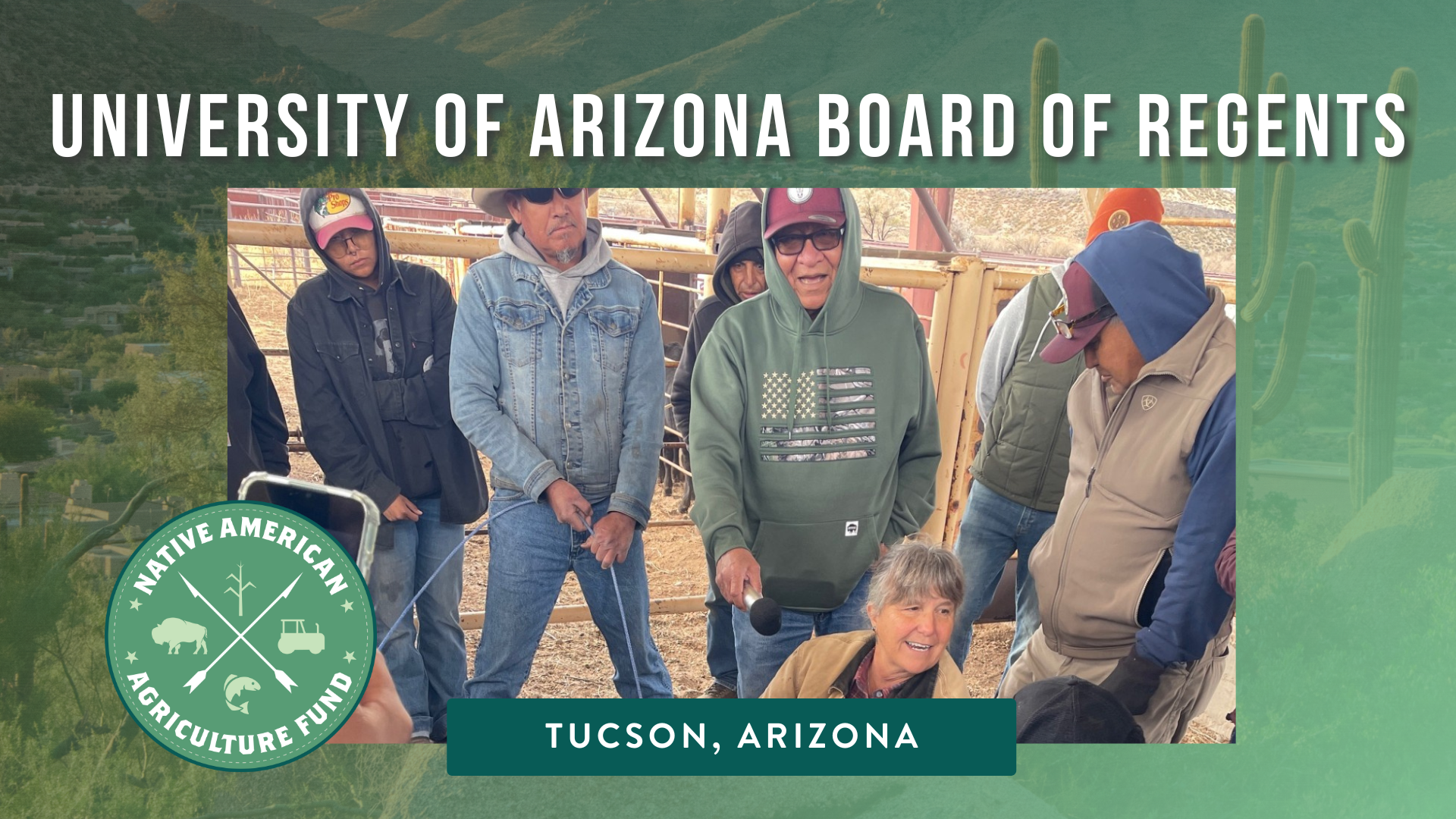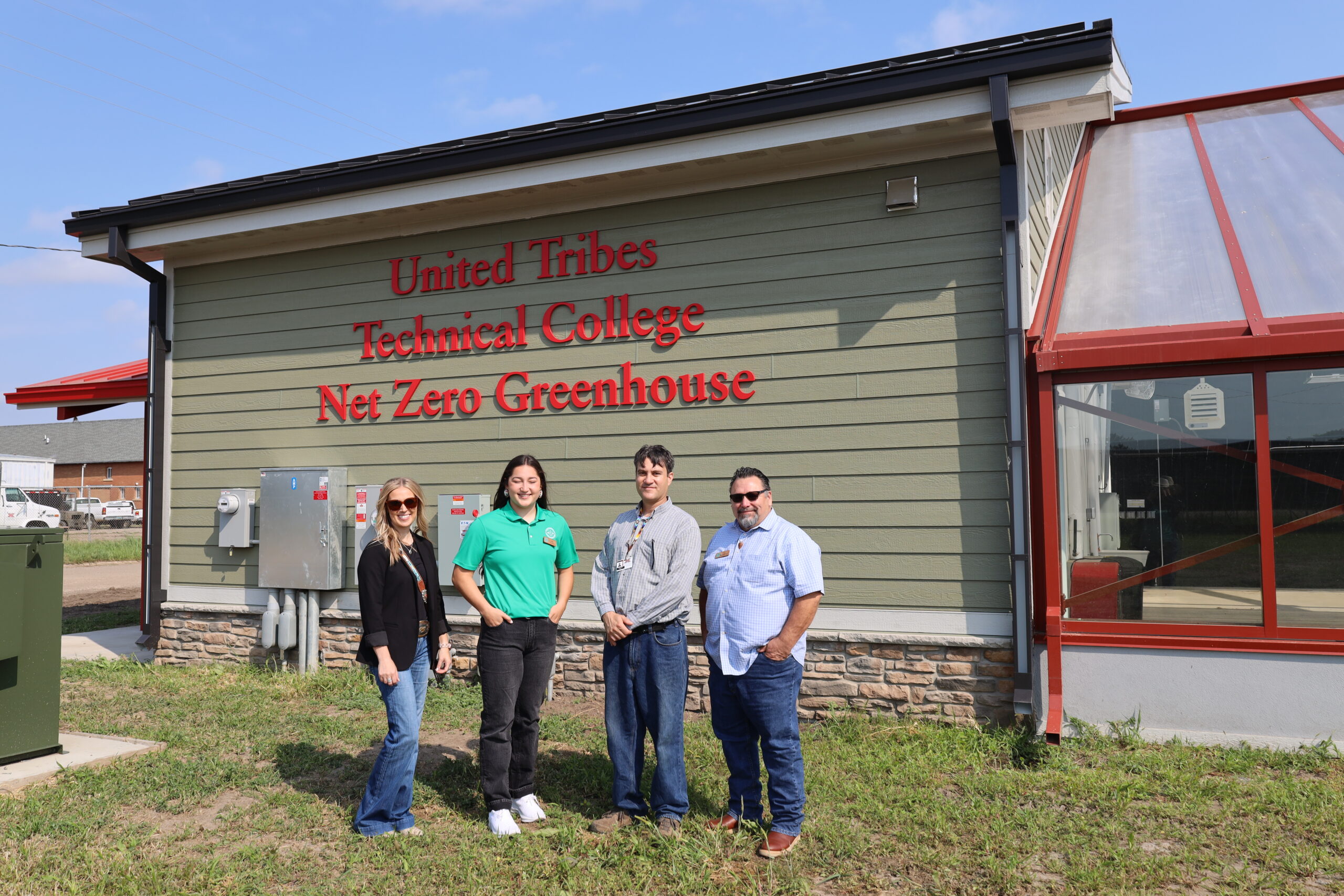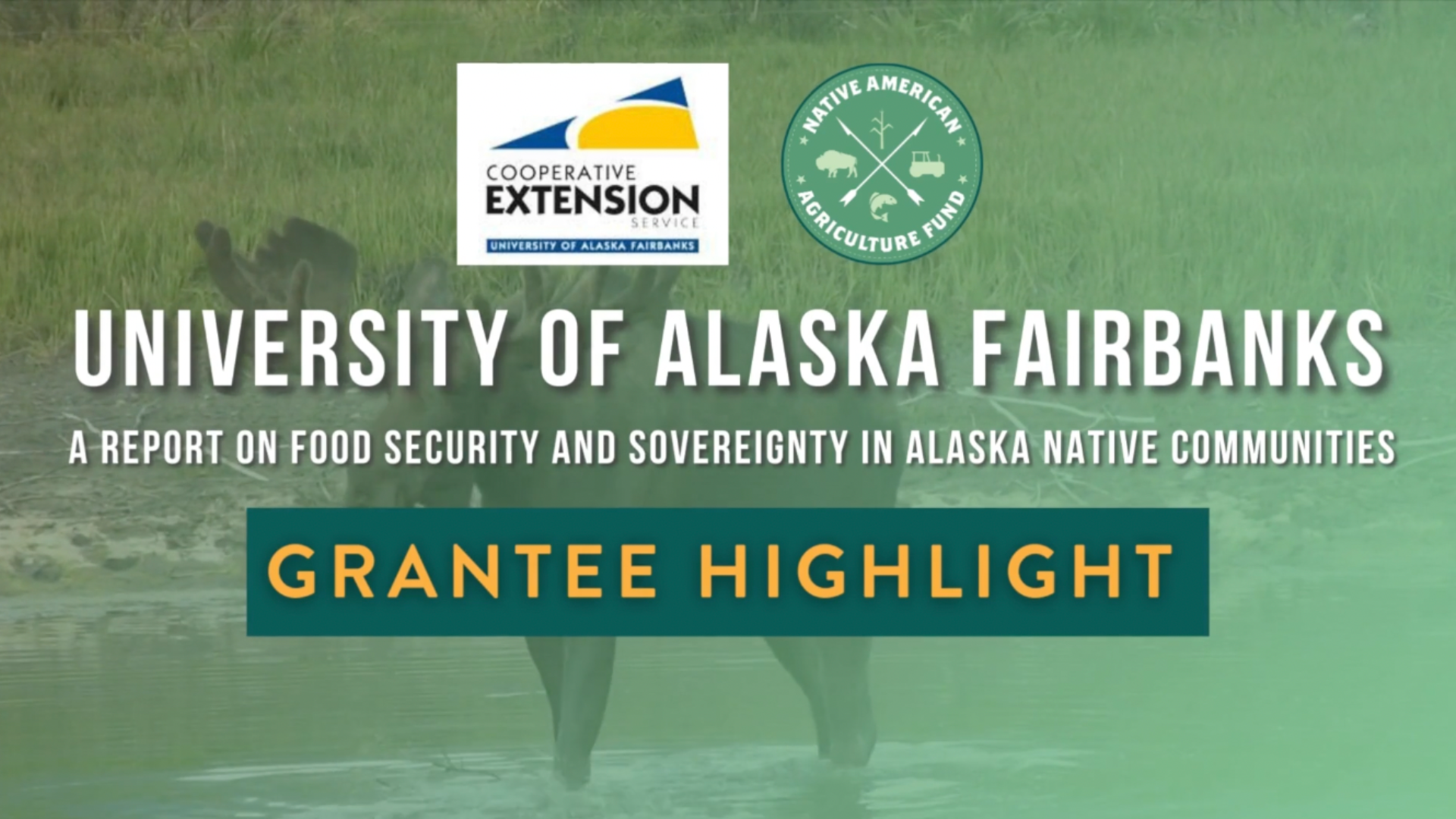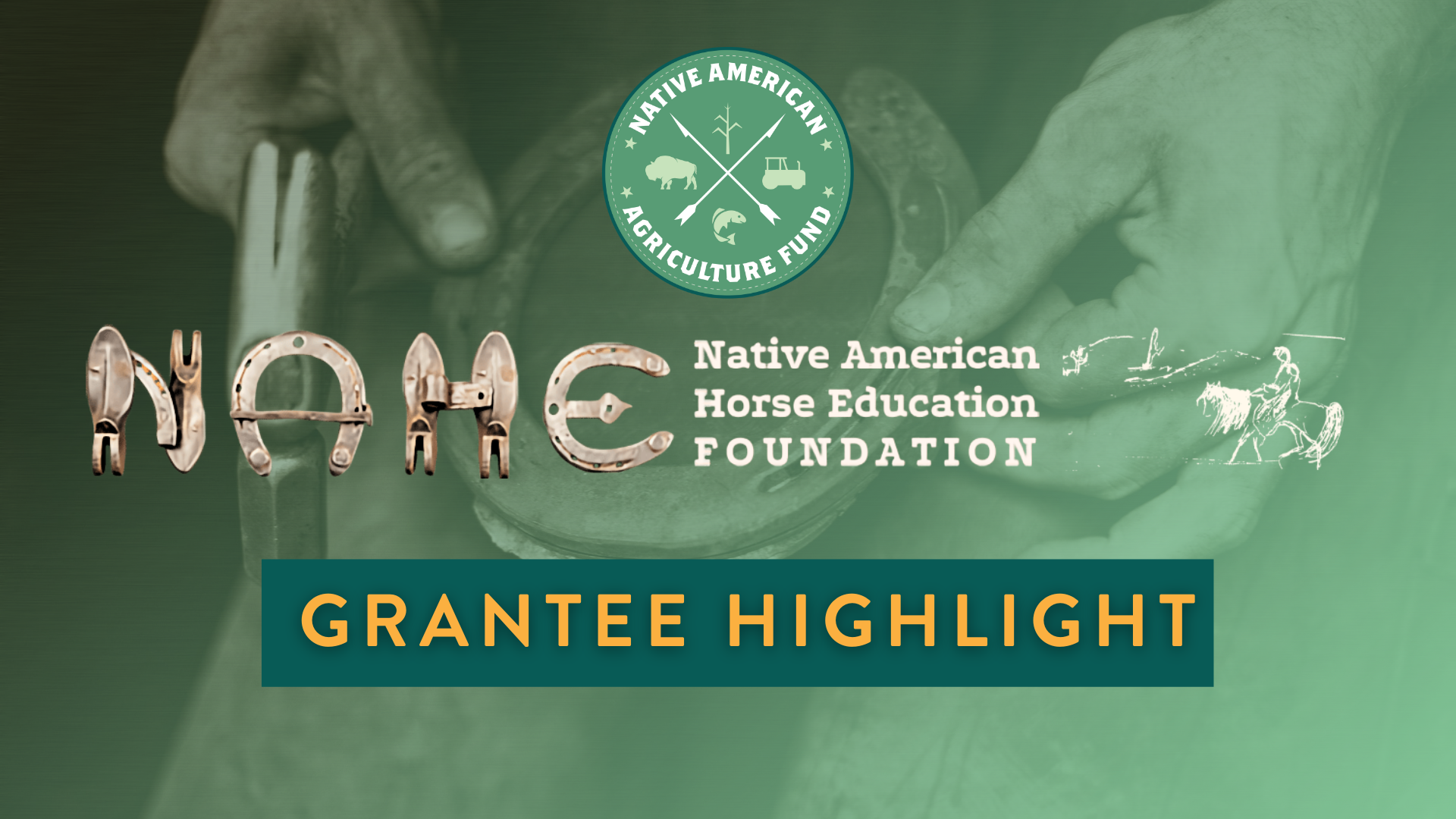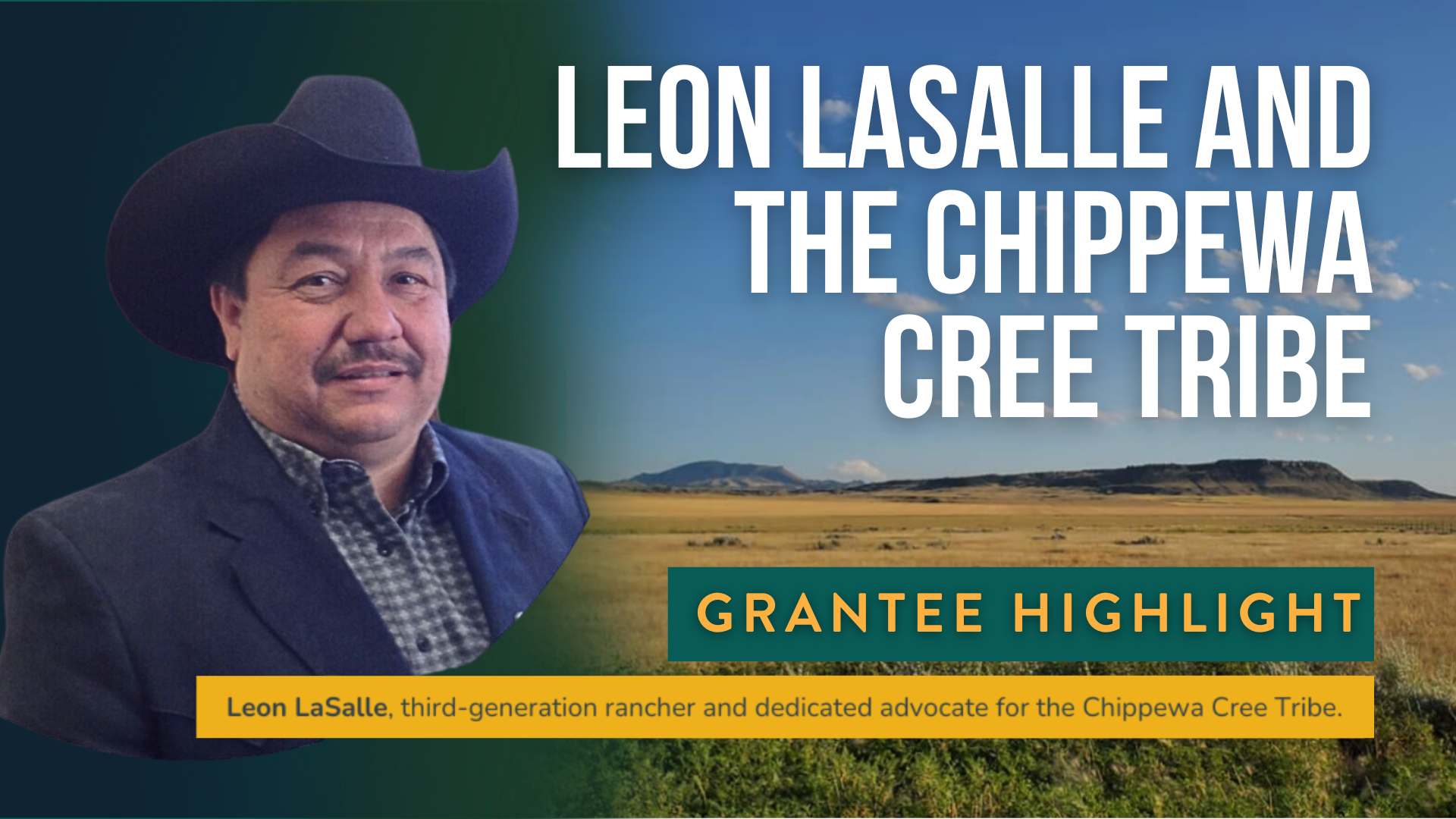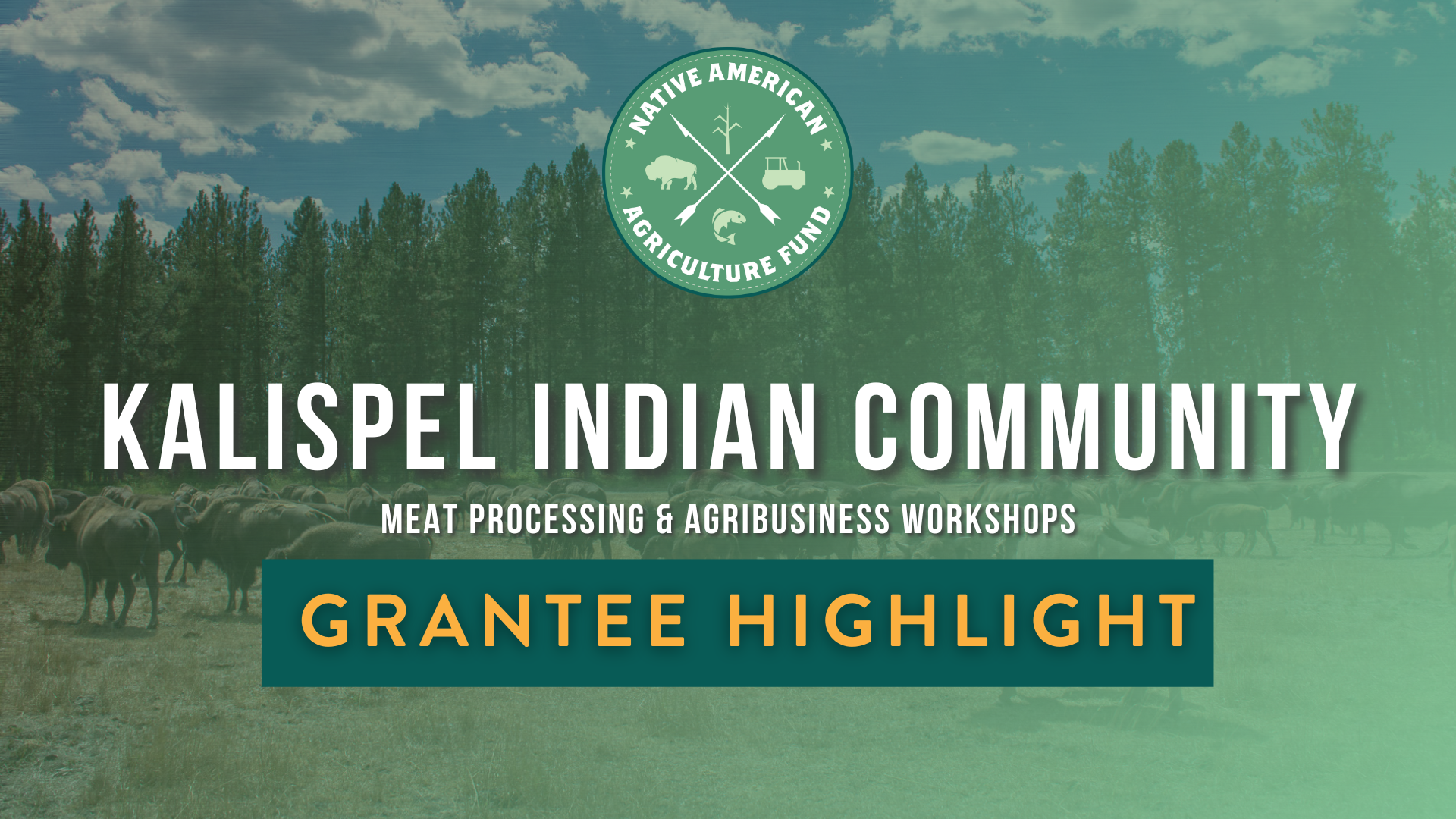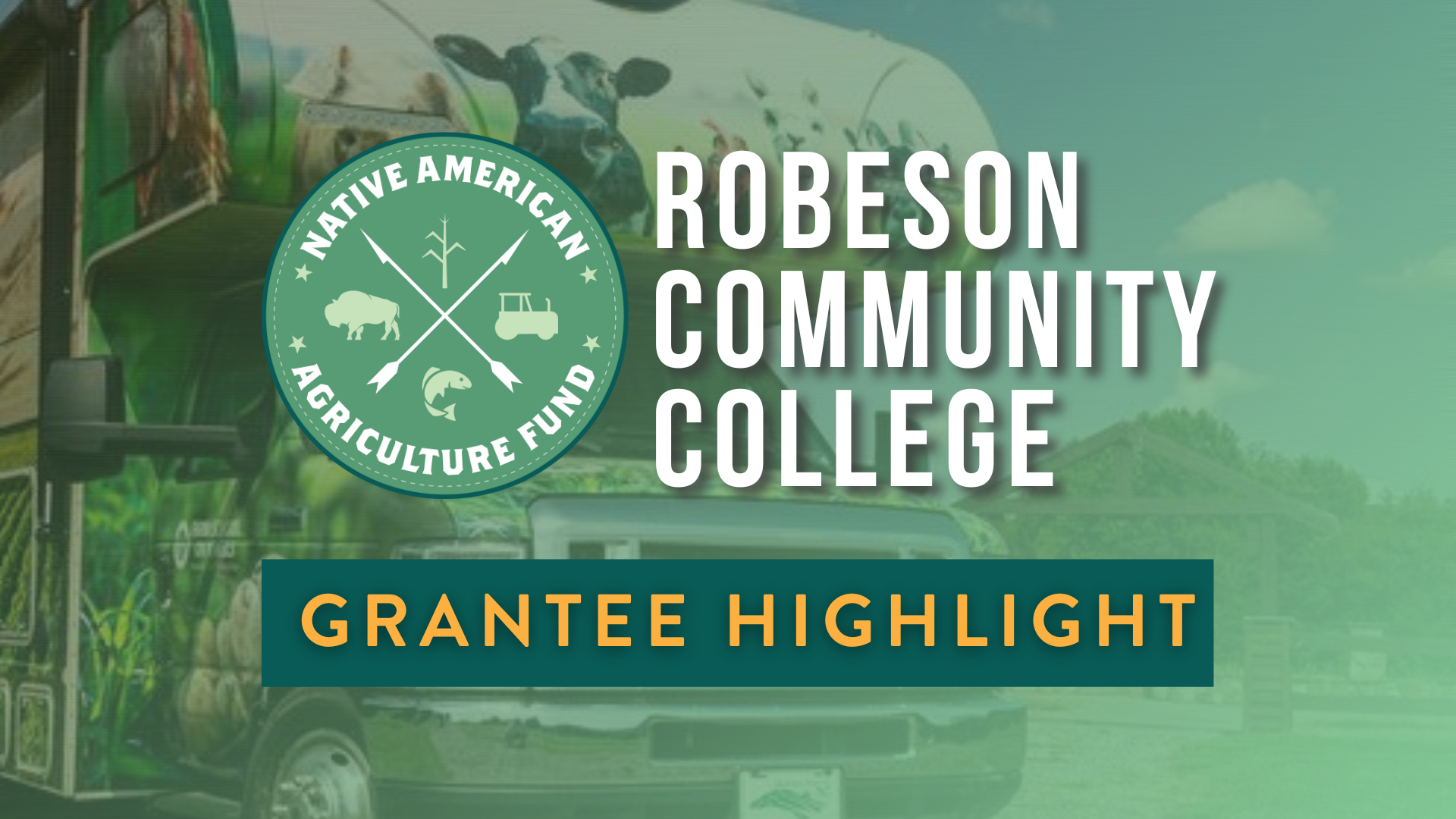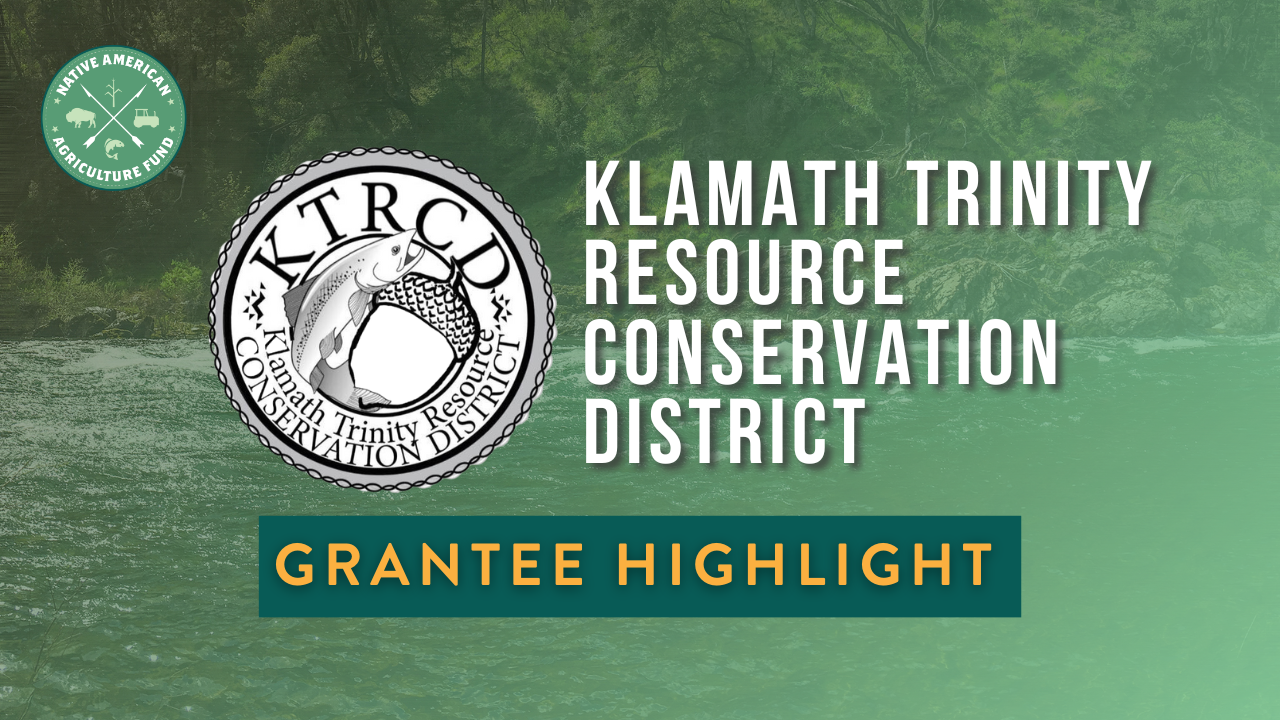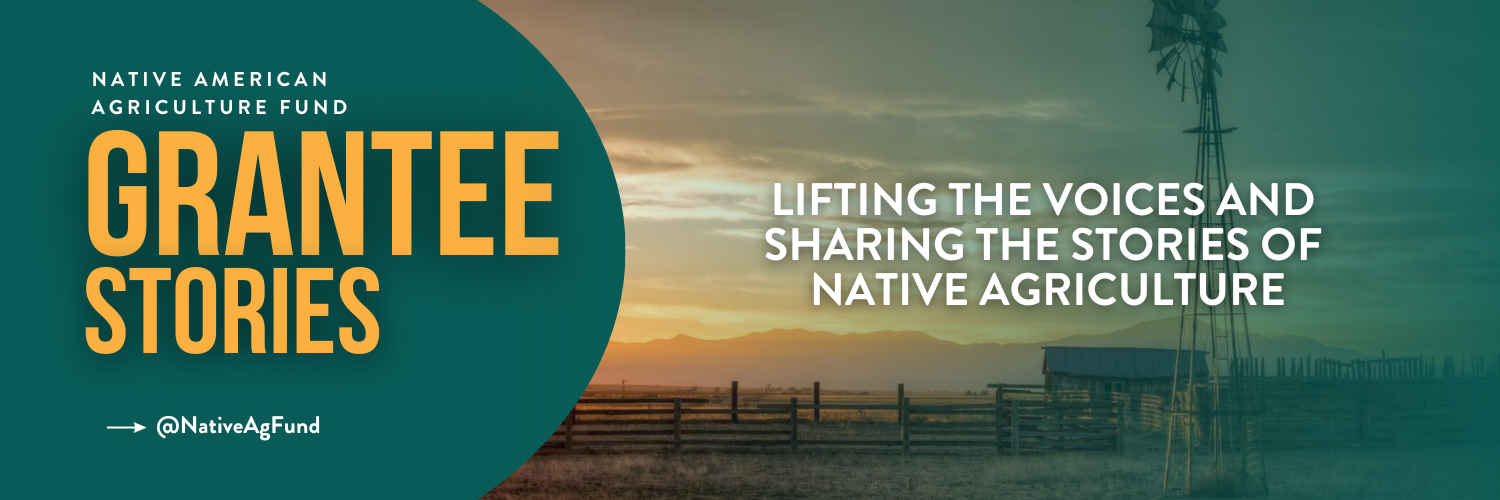
The Native American Agriculture Fund is proud to support the projects and initiatives of our 350+ grantees. We aim to highlight the work being done in Indian Country agriculture, and we are grateful to share their stories. Grantee highlights will be uploaded monthly to this website, or you can visit our YouTube Channel: https://www.youtube.com/@NativeAgFund
Click tile to view each Grantee Highlight video
University of Arizona, Board of Regents
TUCSON, AZ
https://extension.arizona.edu/
The University of Arizona’s tribal extension program plays a vital role in supporting Native American communities through agricultural education and outreach. With NAAF funding, the Preserving Indigenous Agricultural Wisdom project will offer hands-on learning for students on tribal lands. This initiative builds on previous NAAF-supported efforts by finalizing the animal care curriculum, incorporating emergency management training, developing Tribal Agricultural Stewardship Kits (TASKs) and Livestock TASKs, and training trainers to ensure sustainability. FRTEP agents are essential to the success of these workshops, serving as trusted, local educators who can deliver culturally relevant training, build community relationships, and ensure the long-term impact of the program on Tribal agricultural resilience and self-sufficiency. Take a look behind the scenes of these initiatives, including a look at an old sale ring that San Carlos Apache Tribe and Cattle Association plan on updating to keep cattle sales local.
United Tribes Technical College
BISMARCK, ND
Come along with NAAF staff as we visit United Tribes Technical College in Bismarck, North Dakota.
United Tribes Technical College (UTTC) empowers students through its Sustainable Agriculture and Food Systems (SAFS) Associates Degree program, which aims to support the next generation of Native agriculture producers. This program provides students with essential resources—stipends, tools, equipment, and more—plus hands-on learning opportunities through farm visits and educational events. The newly developed 5,000-square-foot, four-season greenhouse on campus is an exciting addition to the program, supporting food sovereignty and sustainable agriculture. This net-zero greenhouse is the first to be operated by a Tribal college. Click here for the full highlight.
The Homestead Community Development Coorporation
ANAHOLA, HI
hawaiianhomesteads.org
For our next highlight, we are off to the island of Kauai, Hawaii, to visit our long-time grantee, The Homestead Community Development Corporation (known as HCDC). The HCDC has been making significant strides in supporting Native Hawaiian land sovereignty and youth engagement through their impactful projects.
HCDC used NAAF funding to purchase a skid steer and an excavator to enhance their equipment depot. Now full of heavy tools and equipment, this depot is accessible to community members, empowering them with the necessary resources for various projects.
University of Alaska Fairbanks Cooperative Extension
FAIRBANKS, AK
Let’s travel to Alaska to examine a report created by the University of Alaska Fairbanks Cooperative Extension Program on Food Security and Sovereignty in Alaska Native Communities.
The report helps paint a fuller picture of what food and agriculture mean for Alaska Tribes.
The Inuit Circumpolar Council-Alaska outlined a conceptual framework for food sovereignty and security in 2015. They found that without food sovereignty, there would be no food security. One of the biggest threats to Indigenous Food Security is the lack of decision-making power and management authority for Indigenous communities over the food resources they depend upon.
Native American Horse Education Foundation
TUCSON, AZ
The Native American Horse Education Foundation (NAHEF) provides agricultural, business, and technical services to Native American farmers, ranchers, and youth through education and hands-on training. The program specializes in a two-week training course in the art of farriering so that Native Americans can restore the health of their animals and bring economic independence to their Tribes. Leading the charge is master Farrier, Mr. George Goode.
Chippewa Cree Tribe
ROCKY BOY, MT
From the sweeping landscapes of the Chippewa Cree Tribe, a third-generation rancher named Leon LaSalle is tenaciously advocating to reshape the narrative for tribal producers. In an exclusive conversation with the Native American Agriculture Fund, a private funding organization dedicated to increasing access to capital for Native American producers, Leon delves into the triumphs and trials of their groundbreaking grant project aimed at enhancing conservation grazing practices and overcoming the barriers faced by tribal producers in accessing U.S. Department of Agriculture (USDA) programs.
Tolani Lake Enterprises
WINSLOW, AZ
Tolani Lake Enterprises (TLE) is a nonprofit organization committed to empowering Navajo and Hopi communities in the Little Colorado River Valley by revitalizing agricultural practices and fostering economic security. Through collaborative efforts with regional partners, TLE provides essential support to farmers and food entrepreneurs, offering training, technical assistance, business guidance, mini-grants, and micro-loans. By equipping individuals with the necessary skills and resources, TLE aims to enhance their capacity to cultivate, share, and market nutritious food within the southwestern section of the Navajo Nation.
Kalispel Indian Community
USK, WA
www.kalispeltribe.com
In the heart of the Kalispel Indian Reservation, located in Northern Washington State, the Kalispel Indian Community set out to redefine self-sufficiency, honor tradition, and cultivate community ties, all through meat processing and AgriBusiness workshops.
Processing meat on the Reservation has become a statement, a commitment to self-sufficiency and cultural respect. The limited off-site options, with just one licensed butcher shop in the county, meant long waits and high costs. They controlled the logistics by bringing the process home and wove cultural practices into every step.
Robeson Community College
LUMBERTON, NC
Robeson.edu/public-service/cularts
“Go to rural first. Go to your farmers and ranchers first. If you can support a Native American farmer, that’s a blessing.”
This video focuses on the Robeson Community College (RCC) grant project funded by the Native American Agriculture Fund. The project focuses on their Business of Farming curriculum, the RCC Culinary Program and Green Zone, and their Access to Capital Workshops hosted on campus.
Klamath Trinity Resource Conservation District
HOOPA, CA
This highlight focuses on NAAF grantee Klamath Trinity Resource Conservation District and their youth gill net project. This featured portion of the project took place at the Hoopa Valley High School. The project featured a local fisherman showing the students in the Hoopa Cultural Class how to make their gill nets and how to filet and can salmon properly while also explaining the fishing rights and traditional importance of having their nets in the Trinity River.
